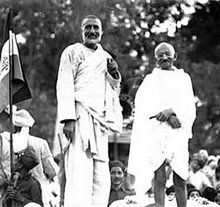In a healthy culture, when an individual announced his or her decision to enlist in the military, the immediate response of the recipients of this news would be to look at their shoes in embarrassed silence. Then, after a few moments, the intensive questioning would begin. "What do you mean? What has happened to convince you that violence is an appropriate response to conflict?" And so it would go until the young recruit would recognize that he or she had marked him or herself as someone who was in danger of committing a serious mistake, one that, if persisted in long enough, would risk communal ostracism.
I am not joking. The military option is no option at all.
When the invasion of Iraq was imminent, I recall having conversations with well-meaning people who would say things like, "Well, you know, I'm generally opposed to war, but they have a lot of problems over there and once the fighting is over, we'll have people on the ground able to help out." And I wondered, "What are these people smoking?" But I would invariably respond to such sentiments by saying: "It is true that Iraq has problems. But we are sending soldiers there, not social workers. Soldiers are people whose primary training is to kill other people. If you wish to put out a fire, don't throw gasoline on it."
The myriad ways in which we manage to rationalize violence are truly astounding.
Subscribe to:
Post Comments (Atom)



No comments:
Post a Comment